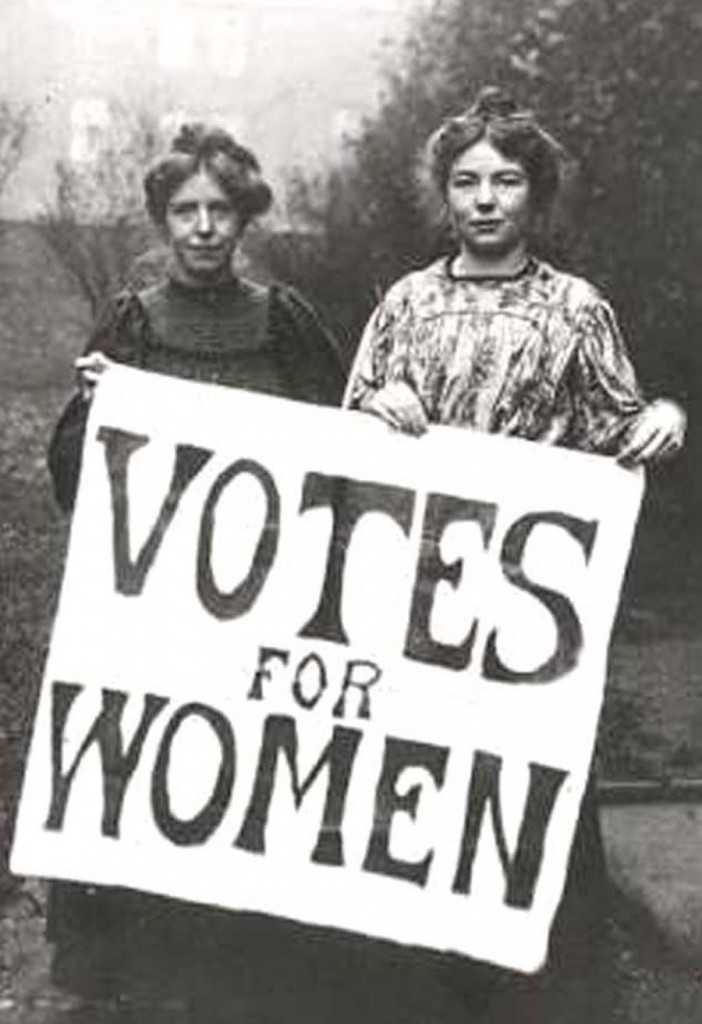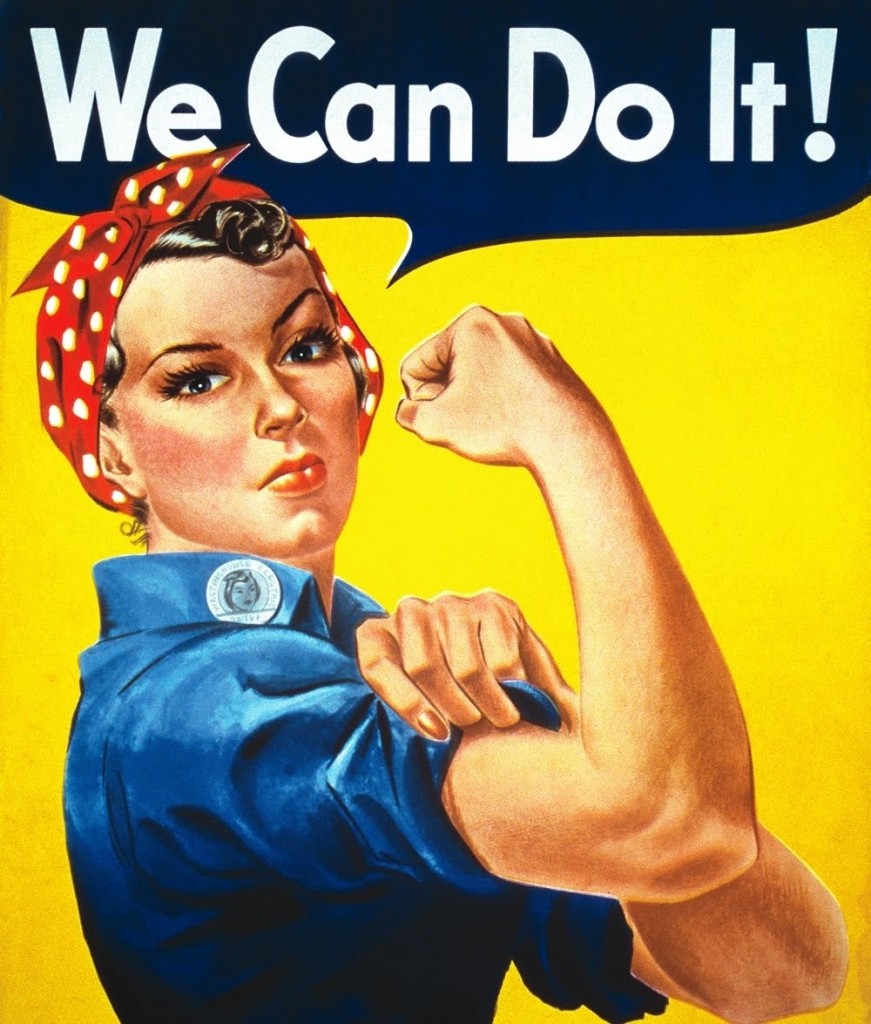There are a lot of words that start with ‘F.’ And yes, there’s a certain very naughty ‘F’ word, too. You know the one.
But the most fraught ‘F’ word, the one that brings up just as many negative as positive connotations, is ‘feminism.’ What, exactly, is a feminist? Is a feminist a woman, or can a man be one as well? Is it good to be a feminist, or bad? Why, after all these years, is the word still so loaded?
Webster’s defines it thusly:
fem·i·nism noun \ˈfe-mə-ˌni-zəm\
: the belief that men and women should have equal rights and opportunities
: organized activity in support of women’s rights and interests
I think for a lot of people, myself included, the term ‘feminist’ conjures up images of strident women wearing combat boots and burning bras. They’re the women who handcuff themselves to iron fences and demand the right to vote. They’re the women who demand the right to walk down the street without being subjected to verbal or sexual harassment. They’re the women who demand equal pay.
They’re the women who shake their fists and demand, demand, demand.
But really – is it wrong for a woman to expect equal pay for doing the same job, or fair treatment at work and at home, or respect when she walks down the street?
My father blamed the rise of feminism, or ‘the trouble,’ as he called it, on World War Two. If not for the war, women wouldn’t have gone to work in factories and munitions plants and oil companies. But they did. They worked, and were paid for their efforts. And they liked their newfound autonomy.
This taste of independence gave women – again, in my father’s words – ‘ideas.’ No longer content to stay home and scrub floors and have a baby every couple of years, women wanted more. They wanted the nice things that an extra paycheck could buy. They wanted help with the housework and the child care. They grew tired of being solely responsible for birth control.
With the arrival of the sixties, things changed even more. Women had The Pill. They could be as promiscuous as men if they liked. Thanks to Vidal Sassoon and his famous five-point cut, women could wear their hair as short as their Mary Quant miniskirts. No more perms or curlers or bows and ribbons. A modern woman’s hair, like her clothing and her sex life, was wash ‘n go.
And still, all these years later, men and women alike remain wary of the word ‘feminist.’ The quality of women’s lives is both better, and worse. We’ve won the right to vote. We’ve become CEOs and engineers. We’re holding down jobs and raising families.
Yet we’ve let ourselves be conned into doing things like waxing off our pubic hair – a spectacularly painful process – in the name of “grooming,” as if having a bush is something to be ashamed of. We wear shoes that we can’t walk in and starve ourselves to fit into a size six dress. Why?
We work. Yet over half of working American women are responsible for the lion’s share of the parental and household chores. Why?
Last year, for the first time in five years, the pay gap between men and women widened. Why?
Less than 25% of MPs in the British House of Commons are women. Those who do become MPs often stand down after a short time. Why?
41% of American women want to see more females in politics. Yet politics remain largely a man’s game. Why?
We’re still not where we need to be. Far from it. But the gap is closing, little by little. With awareness, and the determination to continue to fight for equality, things can change. They will change.
And one day, a new generation of women will have different ‘F’ words to inspire them – words like fairness, as in equal pay for equal work, regardless of gender. Freedom to excel in politics or engineering or mathematics or fashion. And fortitude to stay the course.
I hope we have fondness, too – fondness for the suffragettes and the flappers and the bra-burners who went before us. You paved the way, ladies.
We won’t let you down.



